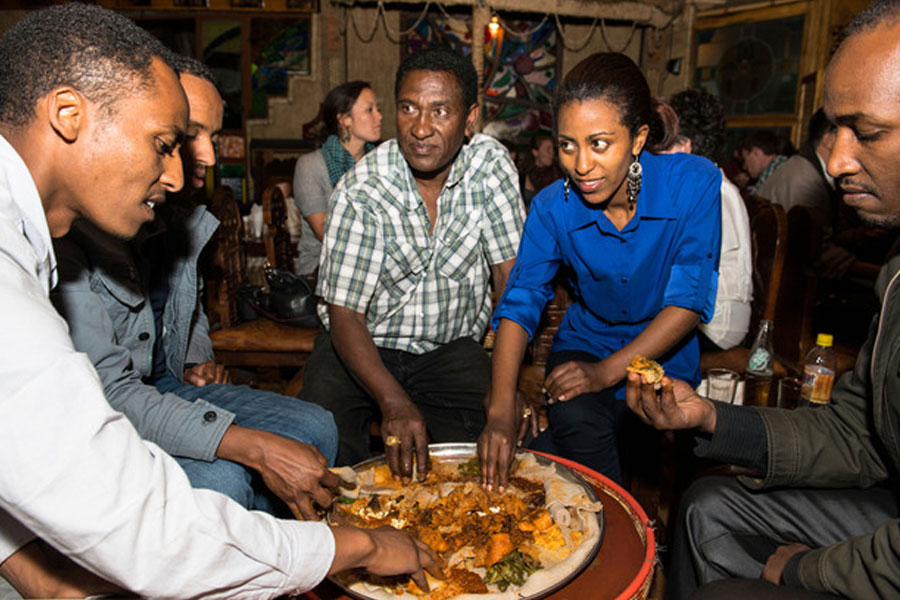
Life Matters | Feb 11,2023
Dec 17 , 2022
By Halima Abate (MD)
Originating in the United States, franchising has become one of the world's most popular expansion methods and distribution strategies today. It is an agreement between two entities. A replication of a proven business formula, the relationship between the franchisor and the franchisee has mutual benefits.
There is no limit to the concepts that can be franchised. Most business-format franchisors have demonstrated to other service industries how to standardize and replicate successful business endeavours of not only the brand and products of the franchisors. They have replaced the entire business model, including operations, know-how, and value-adding activities, coupled with a licensing right and strict operational responsibilities.
The licensing model worldwide has offered consumers lower prices through the efficient distribution of goods and services and consistent quality through standardization. This has been particularly true with the expansion of retail services.
Similarly, it is questionable to see retail franchising without higher quality and lower prices for consumer value. It would have improved at the rate they have throughout the world market. The efficiencies from the technological and digital revolution will probably lower consumer costs. Increased retail franchising in the developing world will provide the data necessary for researchers and host-country governments to determine the impact of retail franchising on economic development. Such empirical research is badly needed.
Other consequences to developing countries of the entry of retail franchising were cultural homogeneity by exposure to Western tastes, loss of economic diversification, and possible displacement of existing local businesses. Government action to encourage retail franchising was cited as the relaxation of legislation to allow foreign ownership and conformity with international codes of copyright protections, trademark rights, and other forms of intellectual property.
On the downside of franchising in emerging markets are capital controls that may inhibit the repatriation of fees and royalties, drastically reducing the investment's economic benefits. Legal constraints, bureaucratic conditions, changes in the legal environment, and unstable political leadership could have a negative spillover effect on the brand.
Some negative aspects of the model include challenges to control as the franchisor has no say over the established, non-branded part of the business, affecting the relationship.
Though it may be a new concept, social franchising, also referred to as not-for-profit franchising goods and services for social purposes rather than commercial benefits, is gaining momentum worldwide. As it facilitates a mechanism to deliver services and products with social goals, it attracts practitioners to apply business formats that achieve social benefits.
In developing countries, the model could address rural social problems.
In the health sector, franchisees are often existing health practitioners recruited for a network. However, the format is often fractional, where only some of the goods or services provided by the outlets are part of the branded group, such as family planning services on the outlet.
Contemplating the model to healthcare might be financially viable while surviving variations in quality and conformity ascribed to the established business from the outset, and only stands to benefit from the branding and other services provided by the franchisor.
Social franchising could enhance existing efforts and accelerate the delivery of critical social services in underdeveloped areas, such as primary healthcare. Similarly, it could be extended to other areas of public service delivery to achieve standardization and higher-quality services, such as education. Such programmes could also be delivered as public-private partnerships (PPPs).
PUBLISHED ON
Dec 17,2022 [ VOL
23 , NO
1181]


Life Matters | Feb 11,2023

Commentaries | Sep 20,2025

Commentaries | Jul 07,2024

Radar | Jun 21,2025

Radar | Nov 23,2019

Fortune News | Jun 25,2022

Commentaries | Dec 23,2023

View From Arada | Feb 10,2024

Radar | Mar 18,2023

Sunday with Eden | Dec 05,2018

Photo Gallery | 177010 Views | May 06,2019

Photo Gallery | 167224 Views | Apr 26,2019

Photo Gallery | 157817 Views | Oct 06,2021

My Opinion | 136947 Views | Aug 14,2021

Dec 22 , 2024 . By TIZITA SHEWAFERAW
Charged with transforming colossal state-owned enterprises into modern and competitiv...

Aug 18 , 2024 . By AKSAH ITALO
Although predictable Yonas Zerihun's job in the ride-hailing service is not immune to...

Jul 28 , 2024 . By TIZITA SHEWAFERAW
Unhabitual, perhaps too many, Samuel Gebreyohannes, 38, used to occasionally enjoy a couple of beers at breakfast. However, he recently swit...

Jul 13 , 2024 . By AKSAH ITALO
Investors who rely on tractors, trucks, and field vehicles for commuting, transporting commodities, and f...

Oct 18 , 2025
The political establishment, notably the ruling party and its top brass, has become p...

Oct 11 , 2025
Ladislas Farago, a roving Associated Press (AP) correspondent, arrived in Ethiopia in...

Oct 4 , 2025
Eyob Tekalegn (PhD) had been in the Governor's chair for only weeks when, on Septembe...

Sep 27 , 2025
Four years into an experiment with “shock therapy” in education, the national moo...

Oct 18 , 2025 . By NAHOM AYELE
In a sweeping reform that upends nearly a decade of uniform health insurance contribu...

A bill that could transform the nutritional state sits in a limbo, even as the countr...

Oct 18 , 2025 . By SURAFEL MULUGETA
A long-planned directive to curb carbon emissions from fossil-fuel-powered vehicles h...

Oct 18 , 2025 . By BEZAWIT HULUAGER
Transaction advisors working with companies that hold over a quarter of a billion Bir...